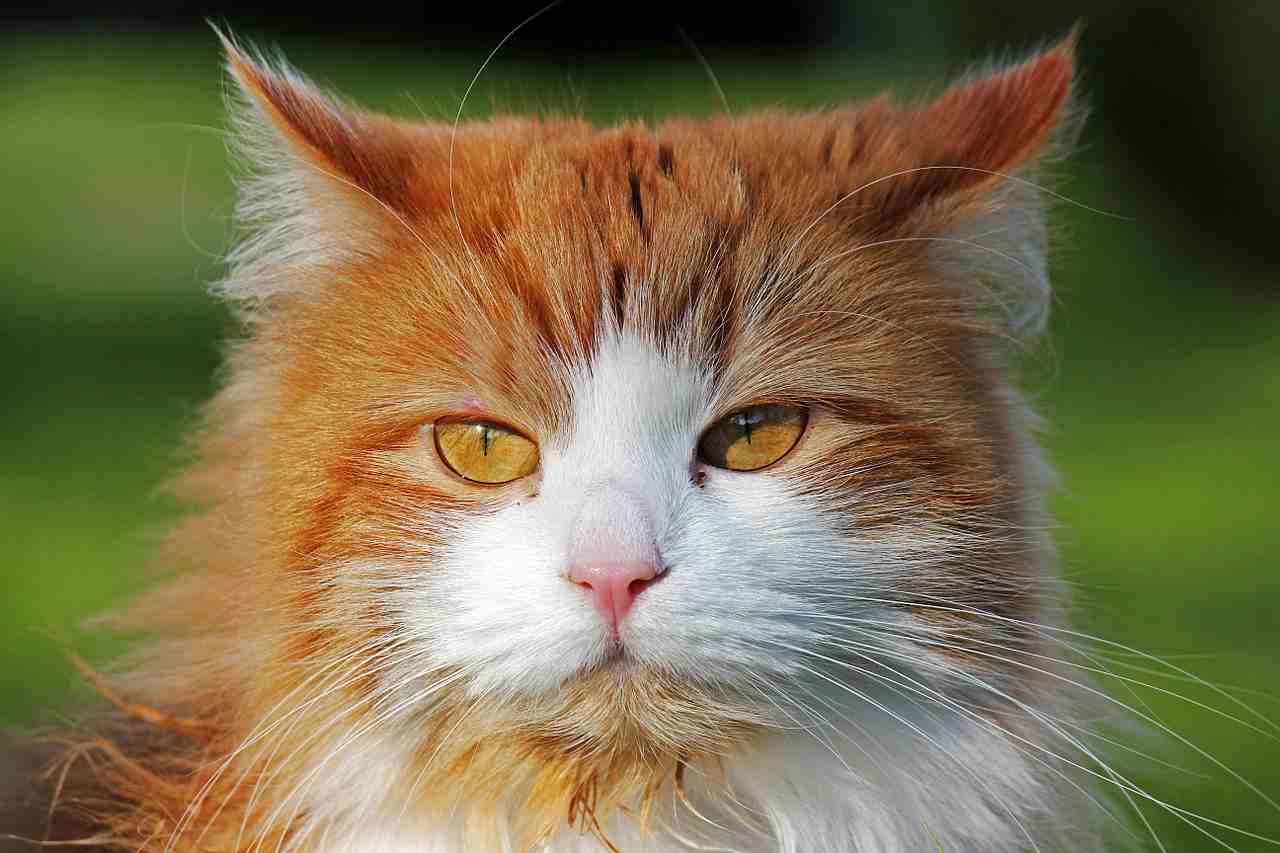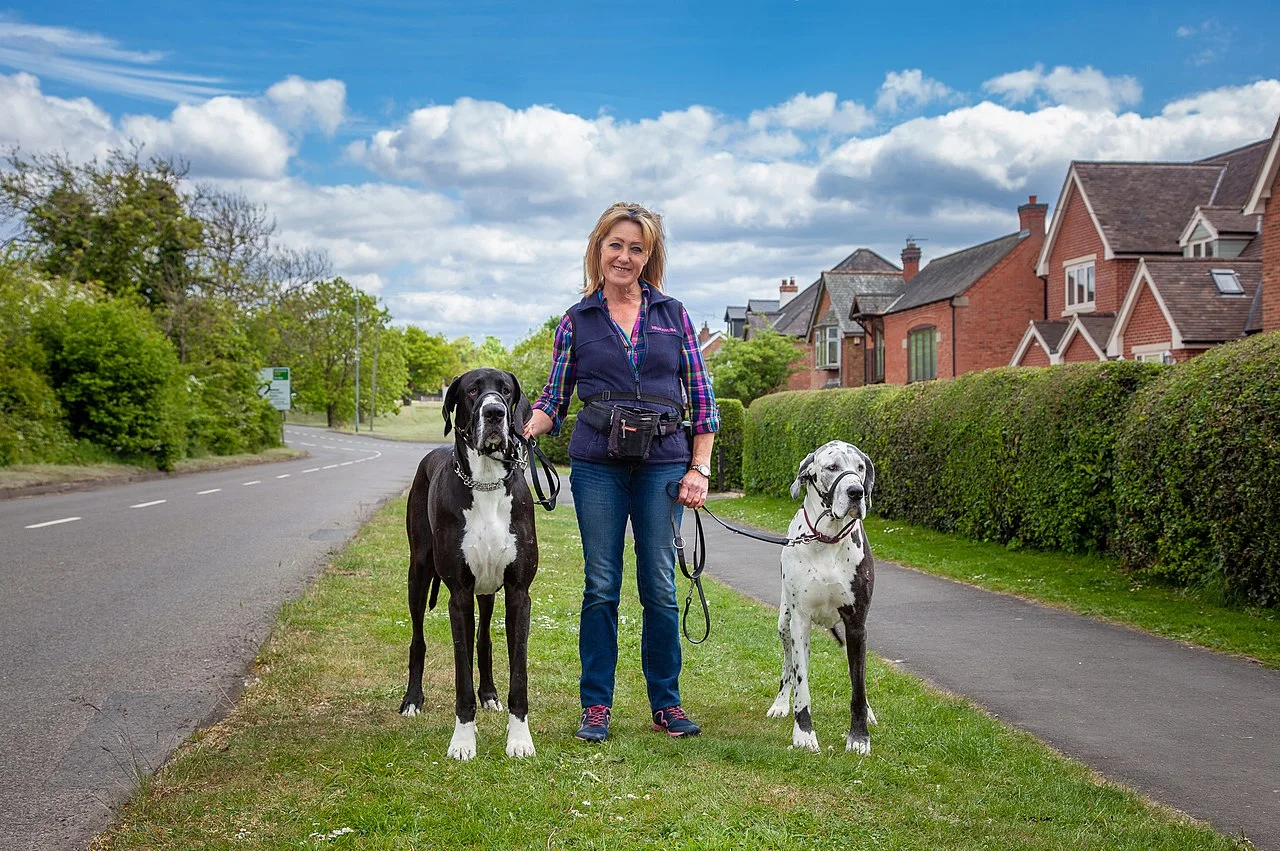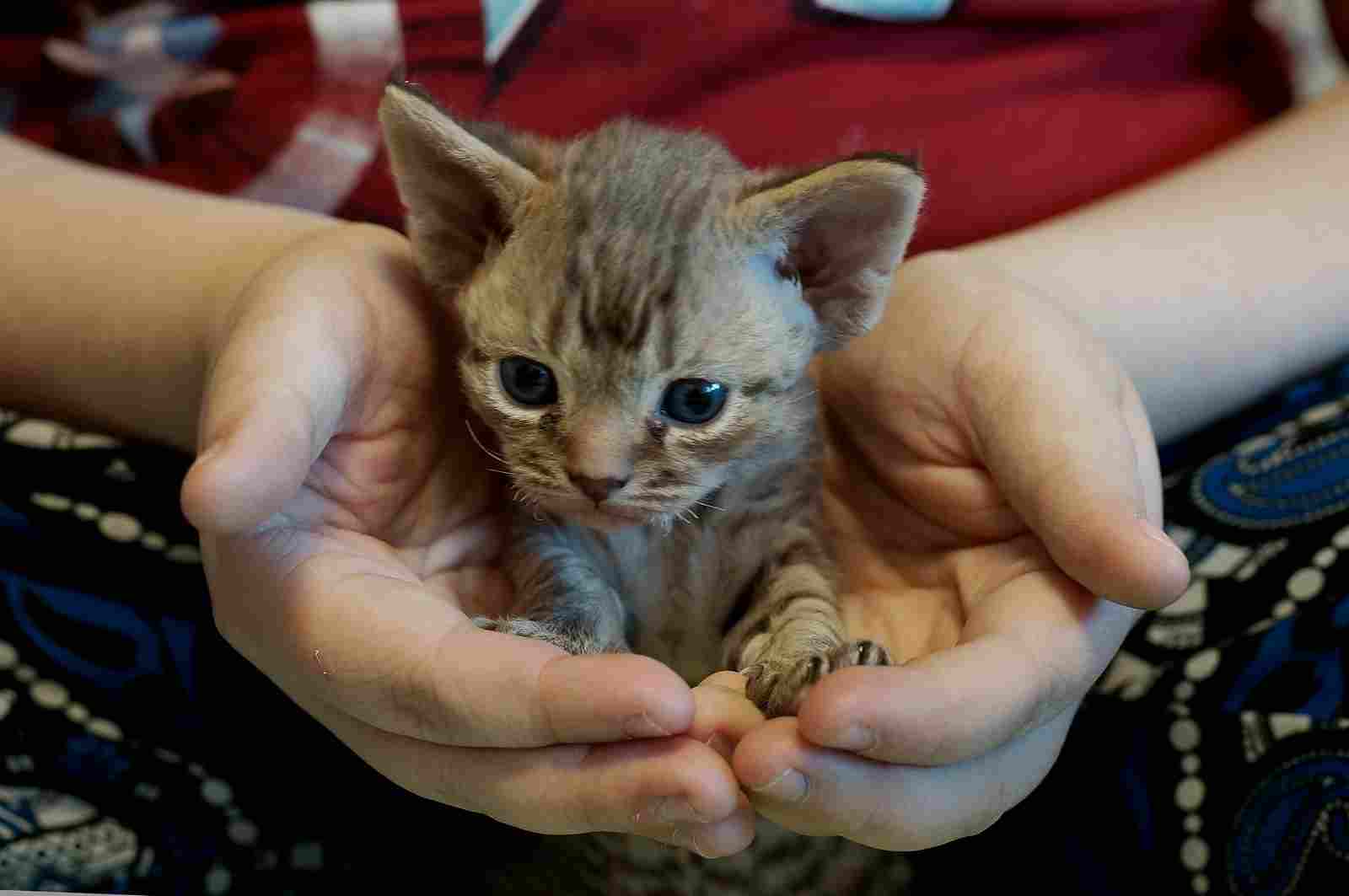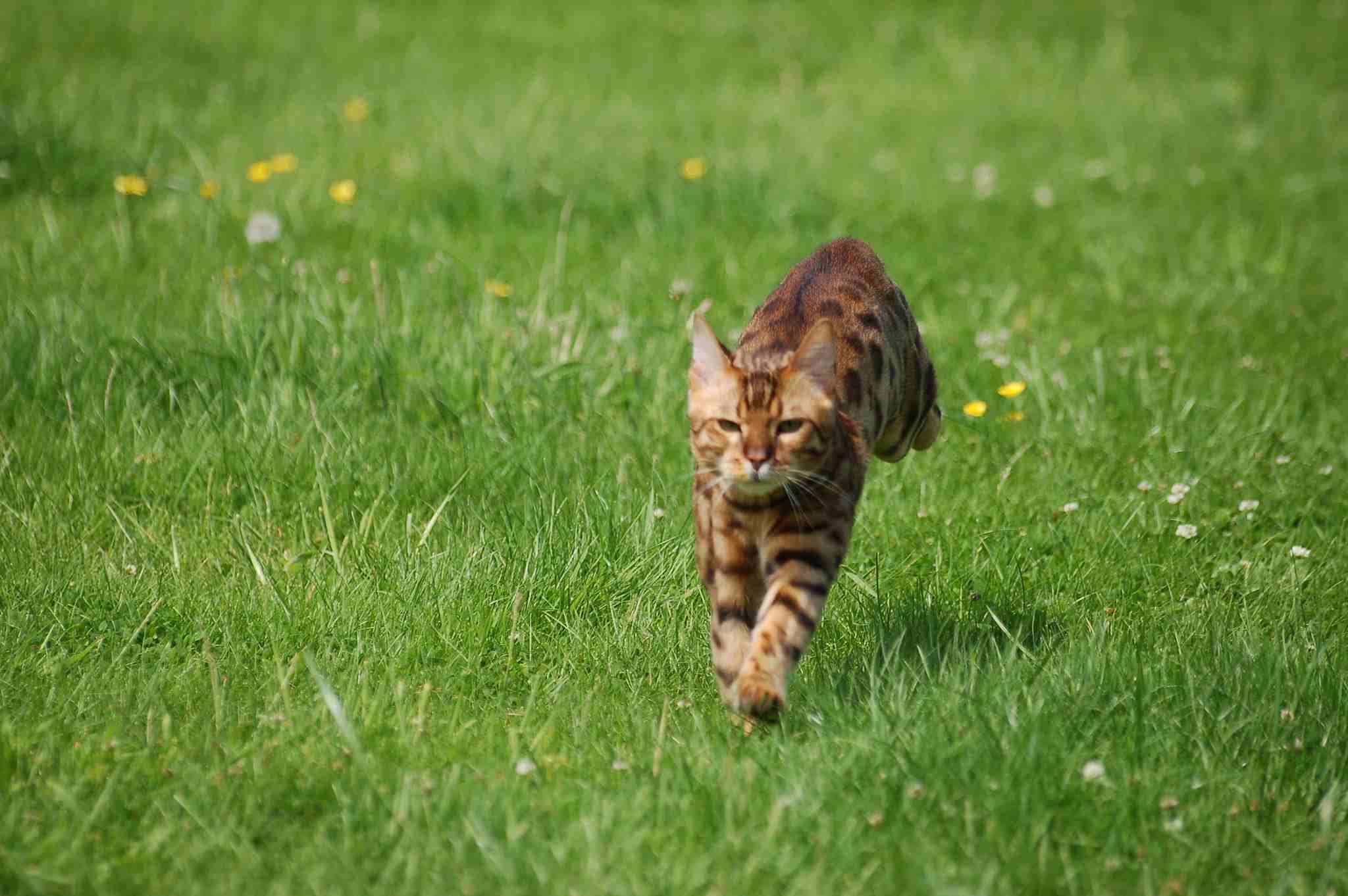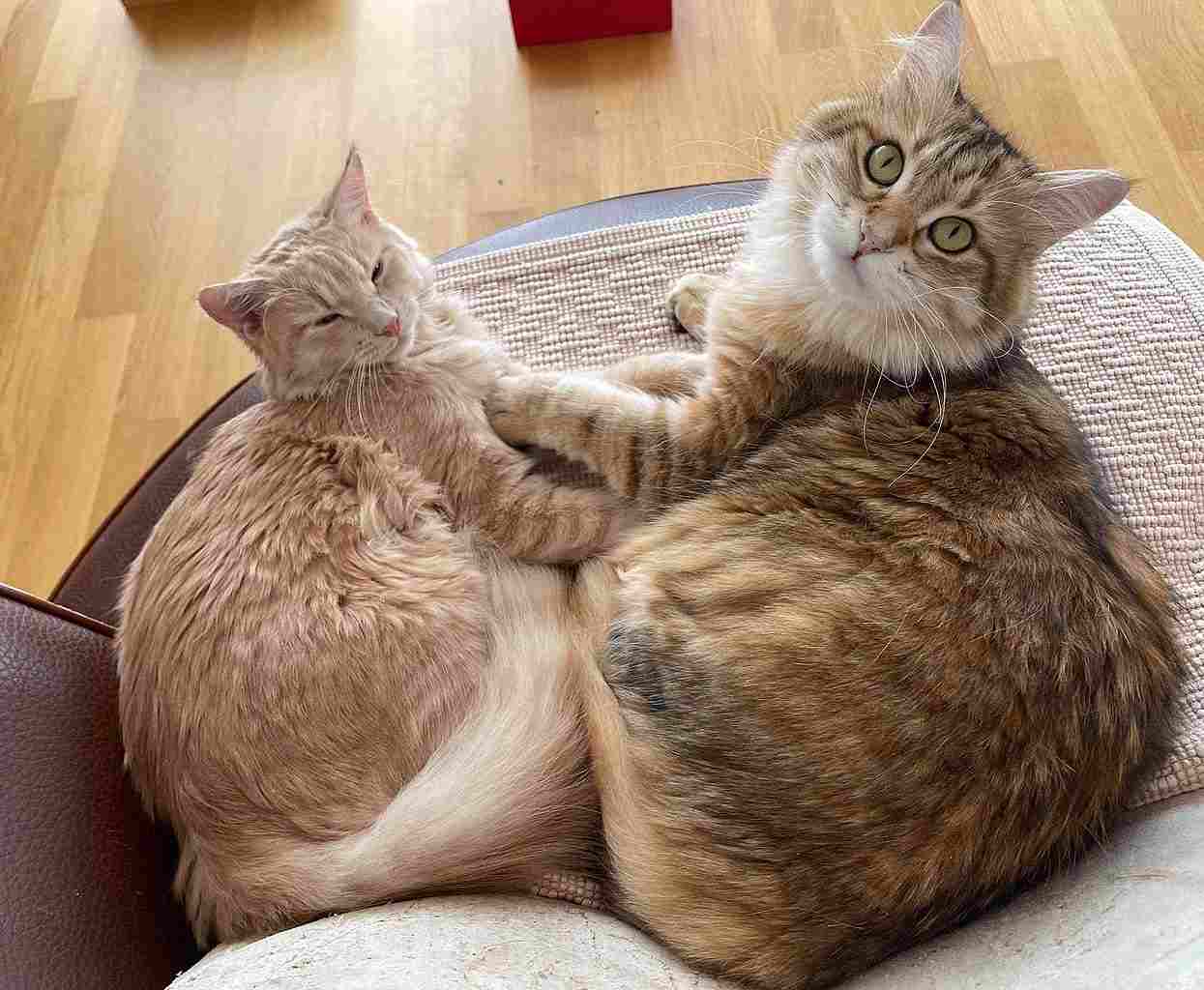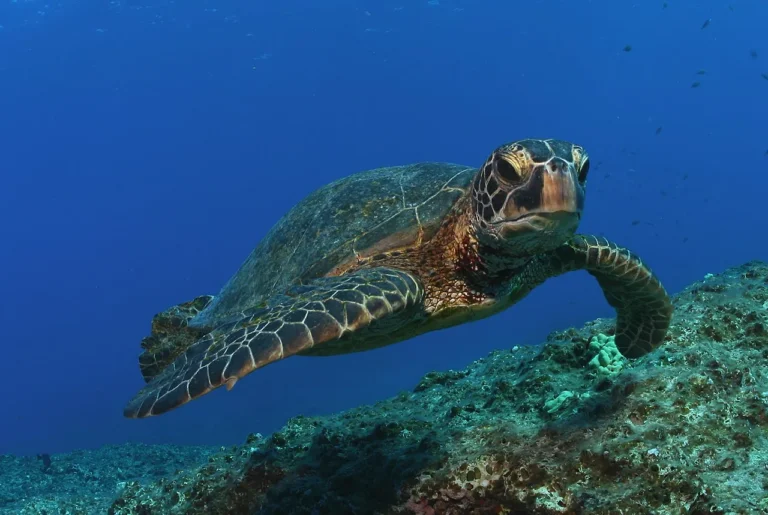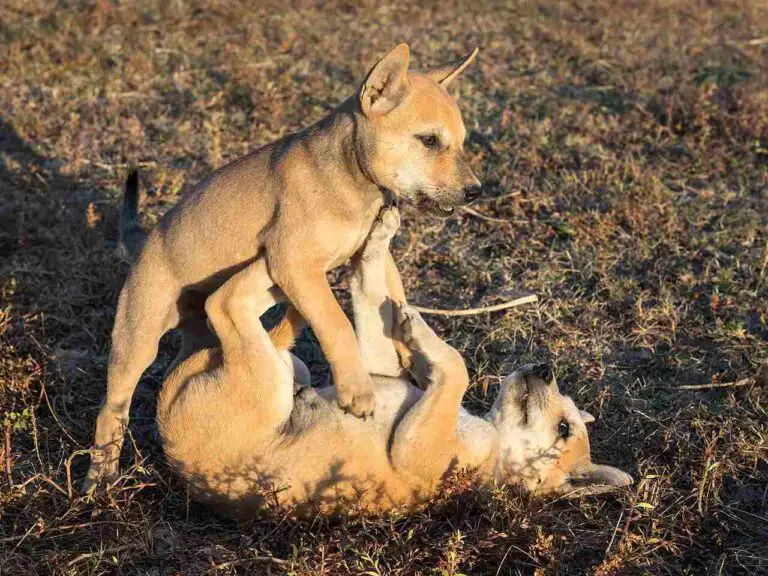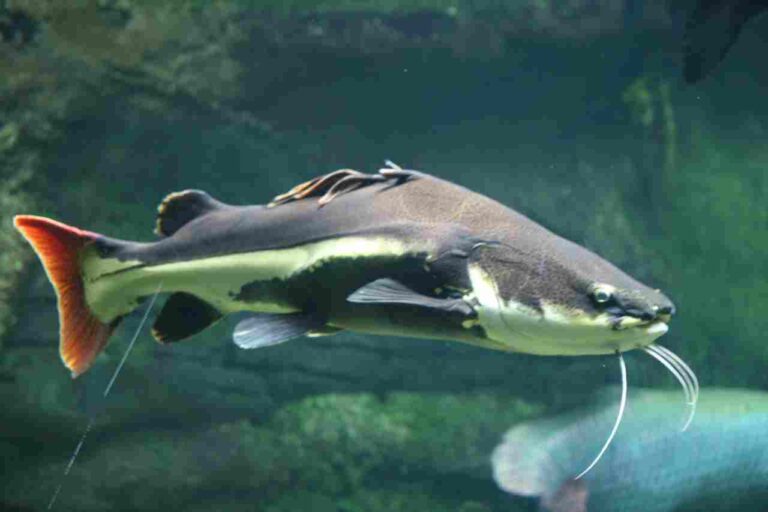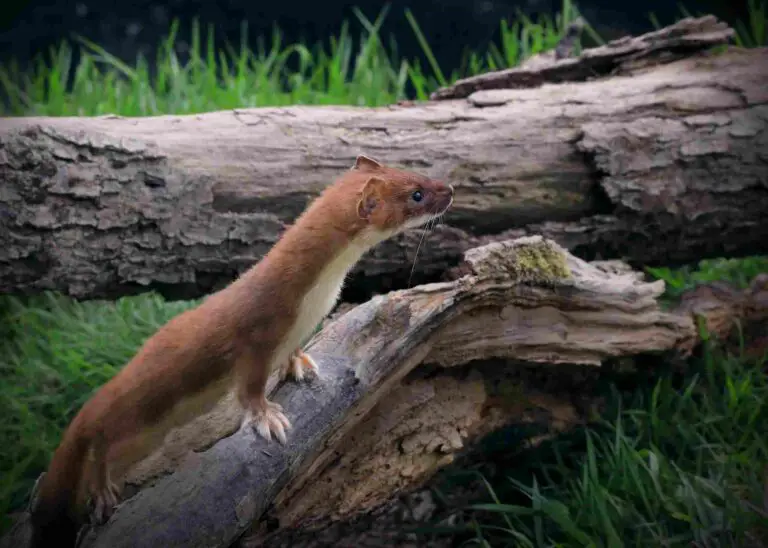Savannah Cat Vs Maine Coon Size, Weight, Overall Comparison
Comparing the Savannah Cat and Maine Coon reveals distinctive features in their coat patterns, size, temperament, and market pricing. While the Maine Coon is known for its fluffy coat with various colors, the Savannah Cat showcases a different coat description. The Maine Coon tends to be larger, friendlier, and more common as a pet, whereas the Savannah Cat commands a much higher price and is recognized for its unique traits.
Savannah Cat vs Maine Coon: Navigating Feline Contrasts
I. Coat Patterns:
– The Maine Coon boasts a fluffy coat with various colors, creating a lush and visually appealing fur. In contrast, the Savannah Cat’s coat is characterized by (describe coat), highlighting its distinct and exotic appearance.
II. Size and Build:
– Maine Coons are generally larger and heavier, characterized by shorter limbs and a more robust build. This physical distinction contributes to their majestic presence compared to the sleeker and more athletic appearance of the Savannah Cat.
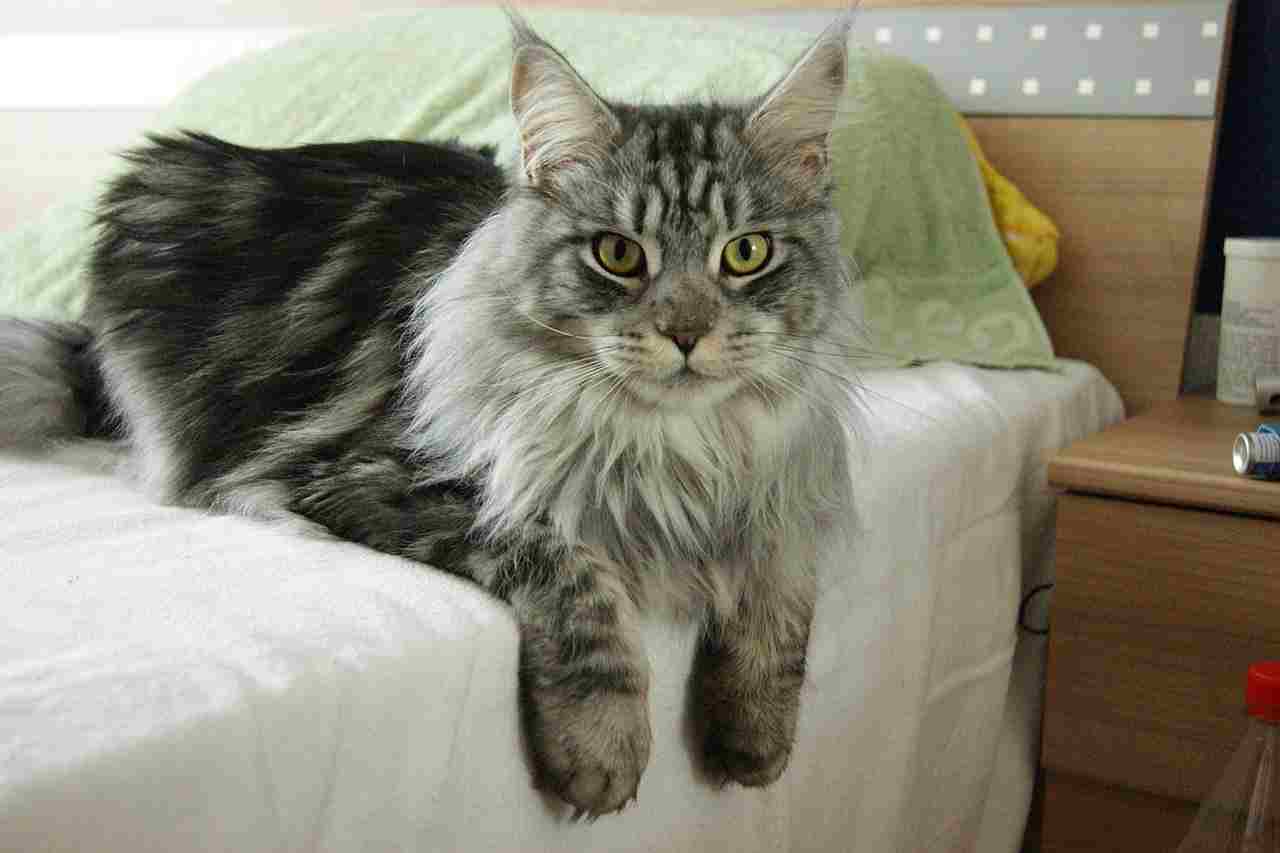
III. Temperament:
– Maine Coons are renowned for their friendly and sociable temperament, making them more common and adaptable as pets. In contrast, Savannah Cats, while also social, may exhibit unique traits that require a more specialized understanding.
IV. Price Considerations:
– Savannah Cats command a much higher price in the market, reaching up to $20,000 or more for certain pedigrees and generations. Maine Coons, while still valued, may have a comparatively lower price range, reaching $3800 and above, reflecting differences in rarity, demand, and perceived value.
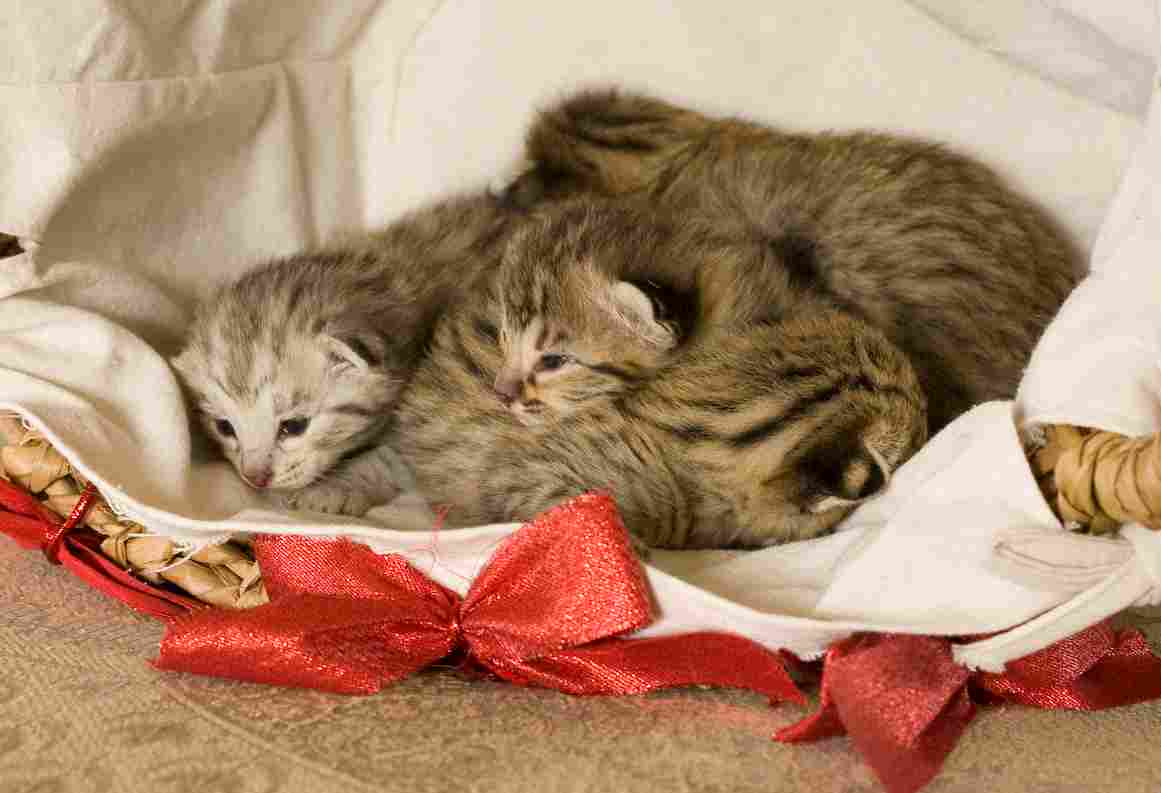
V. Recognizing Unique Appeal:
– Prospective cat owners must carefully consider the coat patterns, size, temperament, and pricing dynamics between Savannah Cats and Maine Coons to select a feline companion that aligns with their preferences and lifestyle.
VI. Fostering Harmonious Companionship:
– Understanding the distinctions between the Savannah Cat and Maine Coon enables cat enthusiasts to create a harmonious and enjoyable companionship tailored to their expectations, preferences, and the unique characteristics of each breed.
*Details of Comparison
| Criteria | Savannah Cat | Maine Coon |
| Appearance | Sleek, spotted, distinctive ears |
Large, muscular, shaggy fur, tufted ears
|
| Size | Medium to large, males larger |
One of the largest, males considerably larger
|
| Weight | Males 12-25 lbs, females 8-16 lbs |
Males 13-18 lbs or more, females 8-12 lbs or more
|
| Bite Force (PSI) |
Around 50-60 PSI for both
|
|
| Offensive Advantages | Agile, sharp claws, predatory instincts |
Excellent hunters, strong hind legs, sharp claws
|
| Defensive Advantages | Quick reflexes, camouflage-like coat |
Thick fur, sharp claws, agility
|
| Speed | Up to 30 mph | Up to 25 mph |
| Agility | Extremely agile, great jumper |
Agile, well-coordinated movements
|
| Senses | Keen sight, hearing, excellent night vision |
Comparable senses
|
| Overall Physical Capacity | High fitness, suited for active lifestyle |
Robust and muscular, adaptable
|
| Habitat Preference(s) | Open spaces, warmer climates |
Adaptable, associated with colder regions
|
| Tracks | Elongated, slender toe prints, visible claw marks |
Larger prints, retractable claws
|
| Lifespan | 12-20 years |
12-15 years, some may live longer
|
| Mode of Feeding | Carnivorous, high-quality cat food |
Carnivorous, balanced cat food
|
| Intelligence | Highly intelligent, problem-solving |
Intelligent, enjoys interactive play
|
| Social Behavior | Affectionate, somewhat independent |
Social, affectionate, gentle nature
|
| Reproduction | Sexual reproduction |
Sexual reproduction
|
| Parental Behavior | Maternal care, grooming, protection |
Maternal care, grooming, protection
|
| Proximity to Human Areas | May need socialization, retains some wild instincts |
Generally well-adapted, social, enjoys human company
|
| Behavior Toward Humans | Affectionate, forms strong bonds |
Social, affectionate, gentle nature
|
| Danger to Humans | Not typically dangerous |
Not typically dangerous
|
| Precautions | Socialization, standard precautions |
Socialization, standard precautions
|
| Conservation Status | Not applicable |
Not a conservation concern
|
Key Points
Similarities:
-
- Both are domestic cat breeds.
- Share common features such as diet, reproduction, and general domestication.
Differences:
-
- Diverge in appearance, size, behavior, and adaptability to human-inhabited areas.
- Savannah cats exhibit a more exotic, wild appearance.
- Maine Coons are one of the largest domestic cat breeds, known for their gentle nature.
- Differences in agility, habitat preferences, and tracks reflect their respective characteristics.
- Both have similar lifespans, intelligence, and social behaviors.
- No conservation concerns, as both are domesticated breeds.
1. Taxonomy:
Savannah Cat:
Kingdom: Animalia
Phylum: Chordata
Class: Mammalia
Order: Carnivora
Family: Felidae
Genus: Felis
Species: F. catus (domestic cat) x serval (wild African cat)
Maine Coon:
Kingdom: Animalia
Phylum: Chordata
Class: Mammalia
Order: Carnivora
Family: Felidae
Genus: Felis
Species: F. catus (domestic cat)
2. Appearance:
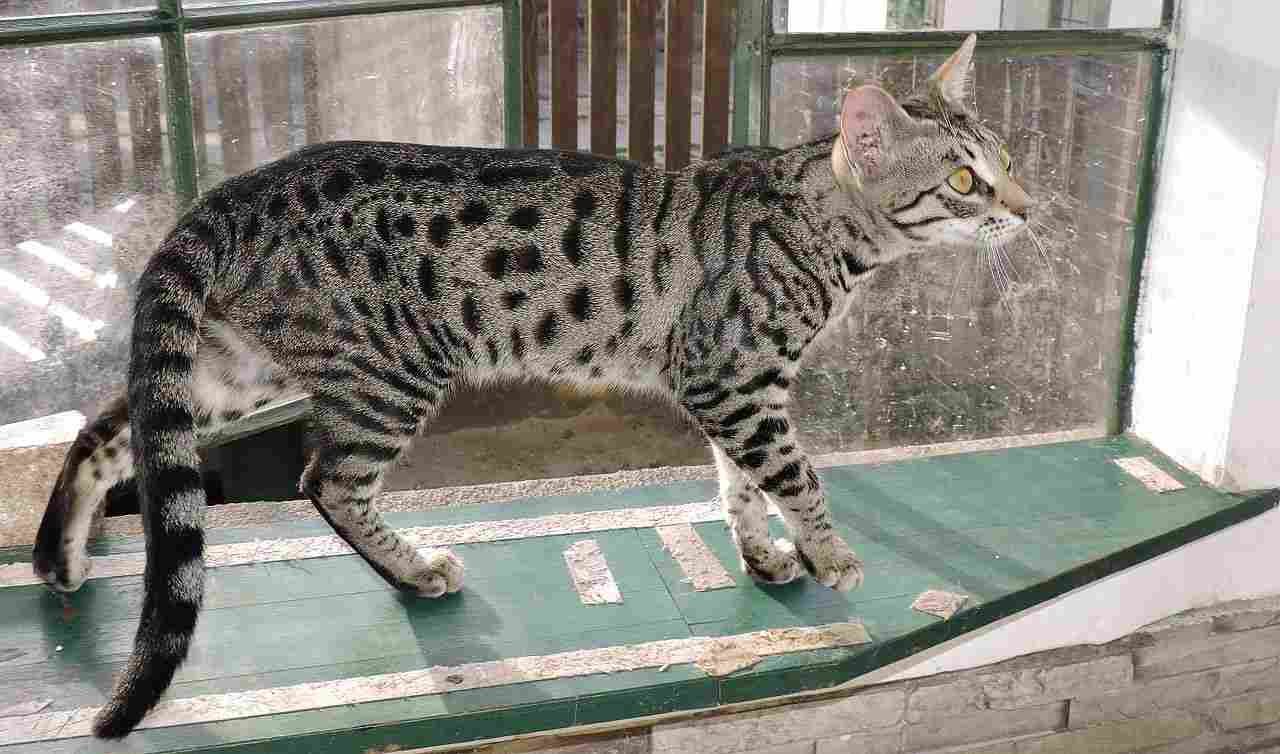
Savannah Cat:
Sleek and slender body with long legs.
Distinctive spotted coat, resembling a wild serval.
Ears are large with a unique “hooded” appearance.
Maine Coon:
Large, muscular build with a rectangular body shape.
Long, bushy tail and tufted ears.
Coat varies, but commonly a long, shaggy fur with a ruff around the neck.
Comparison:
Savannah cats exhibit a more exotic, wild appearance due to their serval ancestry.
Maine Coons are known for their large, domesticated yet impressive appearance.
Ecological Implications:
The exotic appearance of Savannah cats might fuel the demand for hybrid breeds, potentially impacting wild serval populations.
Maine Coons, with their distinctive domestic traits, may have less impact on wild populations.
3. Size:
Savannah Cat:
Medium to large size, comparable to some small wild cats.
Males typically larger than females.
Maine Coon:
One of the largest domestic cat breeds.
Males considerably larger than females.
Comparison:
Maine Coons generally surpass Savannah cats in size, contributing to their reputation as the “gentle giants” of the cat world.
Ecological Implications:
Larger domestic cats may require more resources, impacting the environment indirectly through increased pet care demands.
4. Weight:
Savannah Cat:
Males: 12-25 pounds (5.4-11.3 kg)
Females: 8-16 pounds (3.6-7.3 kg)
Maine Coon:
Males: 13-18 pounds (5.9-8.2 kg) or more
Females: 8-12 pounds (3.6-5.4 kg) or more
Comparison:
Maine Coon males are generally heavier than Savannah cat males.
Both breeds have a noticeable size difference between males and females.
Ecological Implications:
Larger cats may have increased resource needs, affecting their ecological footprint.
5. Bite Force (PSI – Pounds per Square Inch):
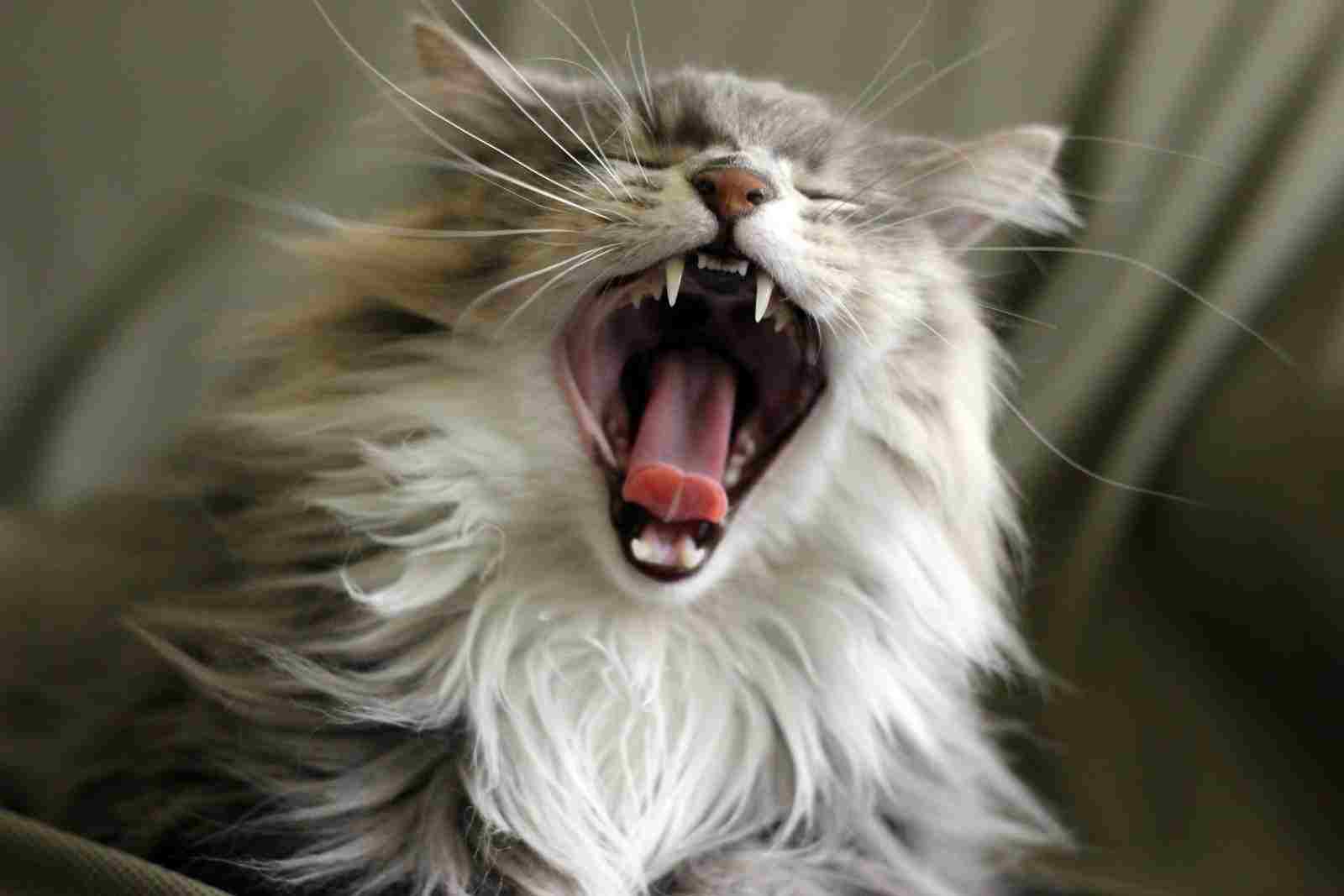
Savannah Cat:
Exact data might vary, but domestic cats typically have a bite force around 50-60 PSI.
Maine Coon:
Similar to Savannah cats, with a bite force around 50-60 PSI.
Comparison:
Both breeds have similar bite forces, reflecting their domesticated nature.
Ecological Implications:
Domestic cats generally have less impact on prey populations compared to larger, wild predators.
6. Physical Offensive Advantages:
Savannah Cat:
Agile and athletic, with the ability to jump great heights.
Sharp claws and strong, predatory instincts.
Maine Coon:
Excellent hunters with strong hind legs for pouncing.
Sharp retractable claws and keen senses.
Comparison:
Savannah cats may possess a more pronounced predatory drive due to their serval ancestry.
Maine Coons showcase hunting skills but in a more domesticated manner.
Ecological Implications:
Both breeds, if allowed outdoors, can impact local wildlife as efficient hunters.
7. Physical Defensive Advantages:
Savannah Cat:
Quick reflexes and ability to escape predators.
Camouflage-like coat aids in blending into surroundings.
Maine Coon:
Thick fur provides some protection against scratches.
Sharp claws and agility for self-defense.
Comparison:
Savannah cats might have a more evolved defensive strategy owing to their wild ancestry.
Maine Coons rely on agility and defensive mechanisms common to domestic cats.
Ecological Implications:
Defensive adaptations contribute to the survival of both breeds in different environments.
8. Speed (Km/hour or Mile/hour):
Savannah Cat:
Capable of reaching speeds up to 30 mph (48 km/h).
Maine Coon:
Agile and can attain speeds up to 25 mph (40 km/h).
Comparison:
Savannah cats generally exhibit higher speed due to their wild heritage.
Maine Coons, while fast, focus more on agility than top speed.
Ecological Implications:
Speed is crucial for both breeds in hunting and evading predators, contributing to their ecological roles.
9. Agility:
Savannah Cat:
Extremely agile and able to navigate various terrains.
Can jump to great heights with precision.
Maine Coon:
Agile and adept at climbing.
Well-coordinated movements.
Comparison:
Savannah cats may showcase a higher degree of agility, resembling their wild serval ancestors.
Maine Coons exhibit agility suitable for their domestic environment.
Ecological Implications:
Agility is crucial for navigating both natural and human-altered environments, impacting ecological interactions.
10. Senses:
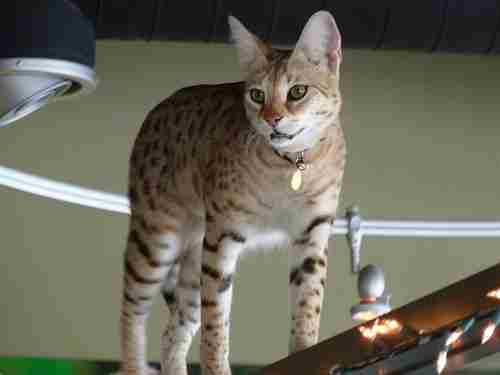
Savannah Cat:
Keen senses of sight and hearing.
Excellent night vision.
Maine Coon:
Well-developed senses, particularly sight and hearing.
Adapted to both day and night vision.
Comparison:
Both breeds have enhanced senses typical of domestic cats, with adaptations for their respective environments.
Ecological Implications:
Heightened senses contribute to their ability to navigate and thrive in various environments.
11. Overall Physical Capacity:
Savannah Cat:
Exhibits a high level of physical fitness.
Well-suited for an active lifestyle.
Maine Coon:
Robust and muscular build.
Adaptable to different physical activities.
Comparison:
Savannah cats may display a more specialized physical capacity, reflecting their wild lineage.
Maine Coons have a versatile physicality suitable for domestic life.
Ecological Implications:
Their physical capacities contribute to their roles within their respective environments.
12. Habitat Preference(s):
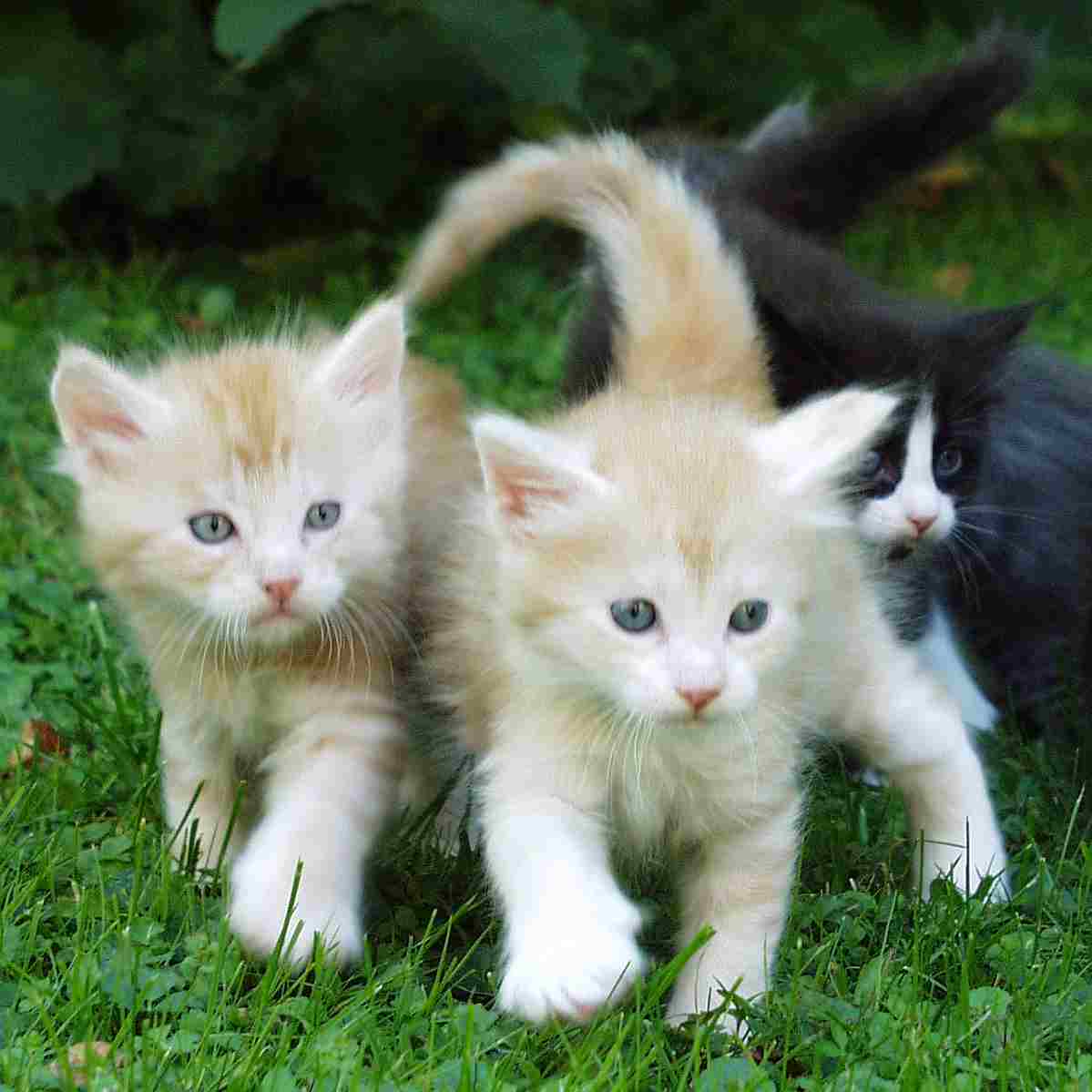
Savannah Cat:
Prefers open spaces with opportunities for climbing.
May show a preference for warmer climates.
Maine Coon:
Adaptable to various environments, but often associated with colder regions.
Comfortable in both indoor and outdoor settings.
Comparison:
Savannah cats might lean towards habitats resembling African savannahs.
Maine Coons are more adaptable, reflecting their domestication.
Ecological Implications:
Habitat preferences influence the ecological impact of both breeds, especially concerning potential interactions with local wildlife.
13. Tracks:
Savannah Cat:
Distinctive tracks with elongated, slender toe prints.
Claw marks may be visible in the prints.
Maine Coon:
Paw prints similar to other domestic cats, with retractable claws.
Larger size compared to many other domestic cat tracks.
Comparison:
Savannah cat tracks may exhibit more wild characteristics due to their serval ancestry.
Maine Coon tracks align with typical domestic cat prints but are larger in size.
Ecological Implications:
Tracking can provide insights into the presence and movement of these breeds in different environments, aiding ecological studies.
14. Lifespan:
Savannah Cat:
Generally, a lifespan of 12-20 years.
Health and genetics can influence lifespan.
Maine Coon:
Typically lives 12-15 years, although some can reach 18 years or more.
Proper care and genetics impact longevity.
Comparison:
Both breeds share a relatively long lifespan for domestic cats, with individual variances.
Ecological Implications:
Longer lifespans can influence the duration and nature of their impact on their respective environments.
15. Mode of Feeding:
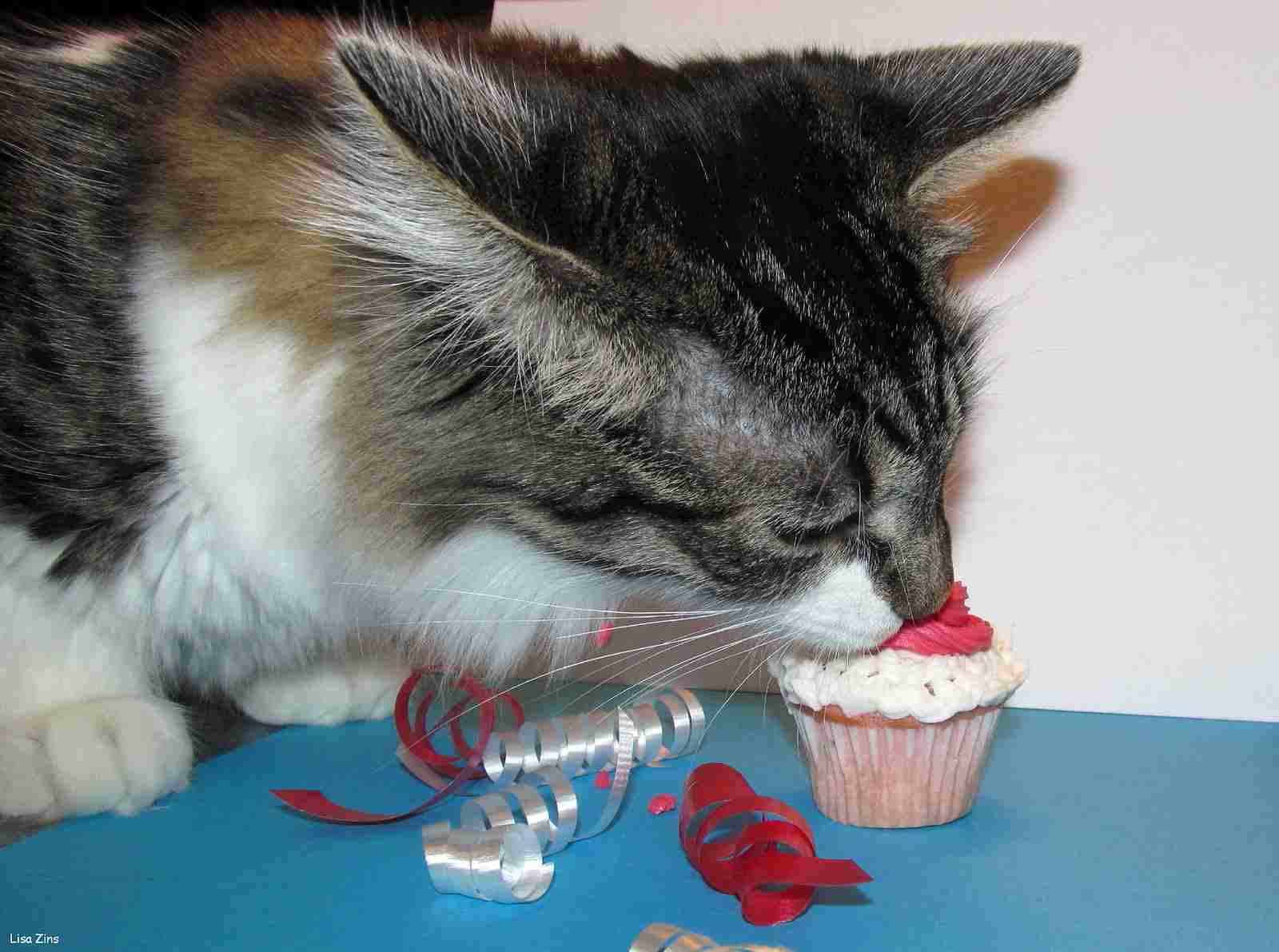
Savannah Cat:
Carnivorous diet, reflecting their predatory nature.
High-quality cat food, supplemented with raw meat in some cases.
Maine Coon:
Carnivorous diet, typical of domestic cats.
Balanced cat food, with considerations for their larger size.
Comparison:
Both breeds share a carnivorous diet, aligning with the dietary habits of domestic cats.
Ecological Implications:
Domestic cats’ feeding habits can indirectly affect local ecosystems through predation on small animals.
16. Intelligence:
Savannah Cat:
Highly intelligent and curious.
Known for problem-solving abilities.
Maine Coon:
Intelligent and adaptable.
Enjoys interactive play and mental stimulation.
Comparison:
Both breeds are considered intelligent, displaying problem-solving and learning capabilities.
Ecological Implications:
Intelligence can impact their ability to adapt to changing environments and interact with local fauna.
17. Social Behavior:
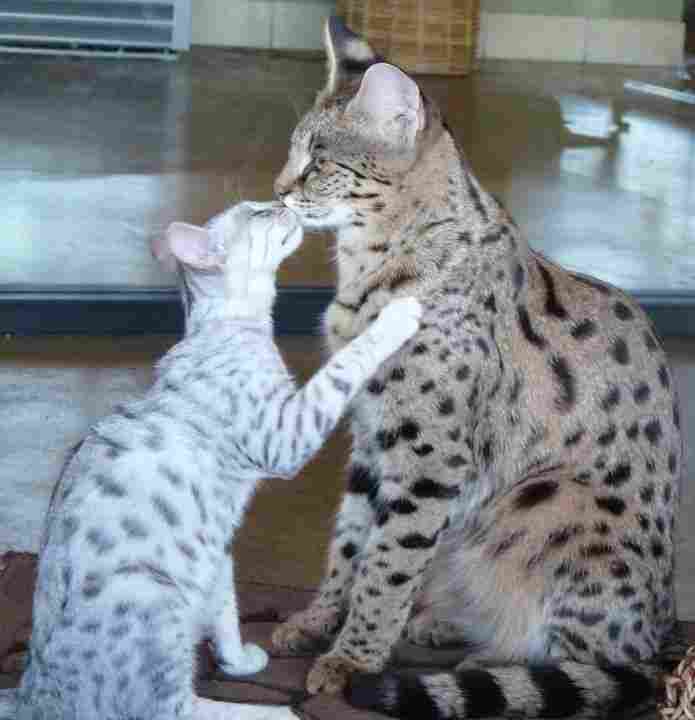
Savannah Cat:
Tends to form strong bonds with their owners.
Can be social but may have an independent streak.
Maine Coon:
Social and affectionate.
Often referred to as “gentle giants” due to their friendly nature.
Comparison:
While both breeds can be social, Maine Coons are often recognized for their gentle and sociable disposition.
Ecological Implications:
Social behavior can influence interactions with other animals in their environment, potentially affecting local ecosystems.
18. Mode of Reproduction:
Savannah Cat:
Reproduces through sexual reproduction.
Breeding typically involves domestic cats and servals.
Maine Coon:
Reproduces through sexual reproduction, typical of domestic cats.
Breeding involves other Maine Coons.
Comparison:
Both breeds share the common mode of sexual reproduction.
Ecological Implications:
Breeding practices, especially in the case of hybrid breeds like the Savannah cat, can have implications for genetic diversity.
19. Parental Behavior:
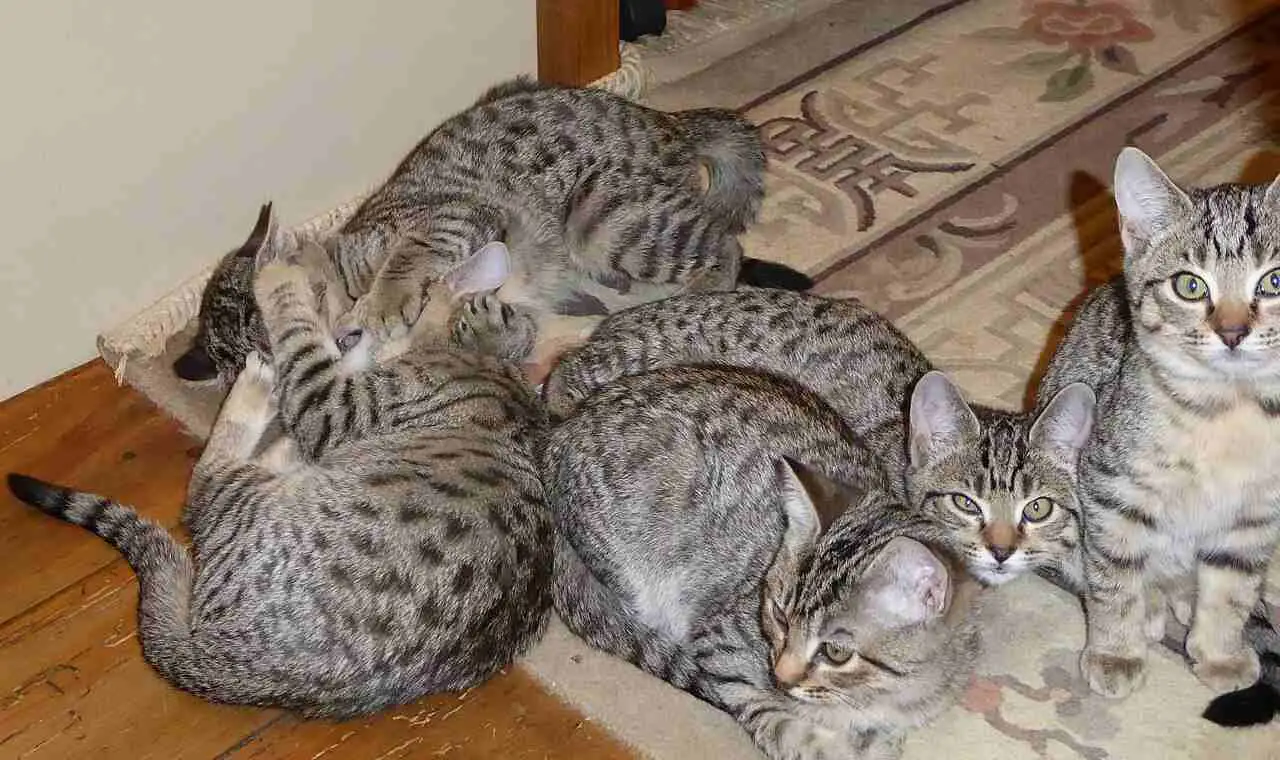
Savannah Cat:
Females are generally attentive mothers, caring for their kittens.
May exhibit protective behaviors.
Maine Coon:
Shows typical maternal care, grooming, and nursing.
Generally protective of their offspring.
Comparison:
Parental behavior is a common trait in both breeds, reflecting typical domestic cat caregiving.
Ecological Implications:
Parental care contributes to the survival of offspring, influencing population dynamics.
20. Proximity to Human-Inhabited Areas:
Savannah Cat:
May be comfortable in human-inhabited areas but retains some wild instincts.
Requires socialization to adapt to domestic settings.
Maine Coon:
Generally well-adapted to living in human homes.
Social and enjoys human companionship.
Comparison:
Maine Coons often exhibit a more domesticated temperament, adapting well to living in close proximity to humans.
Ecological Implications:
Proximity to human-inhabited areas can impact the breeds’ interactions with local wildlife and ecosystems.
21. Behavior Toward Humans:
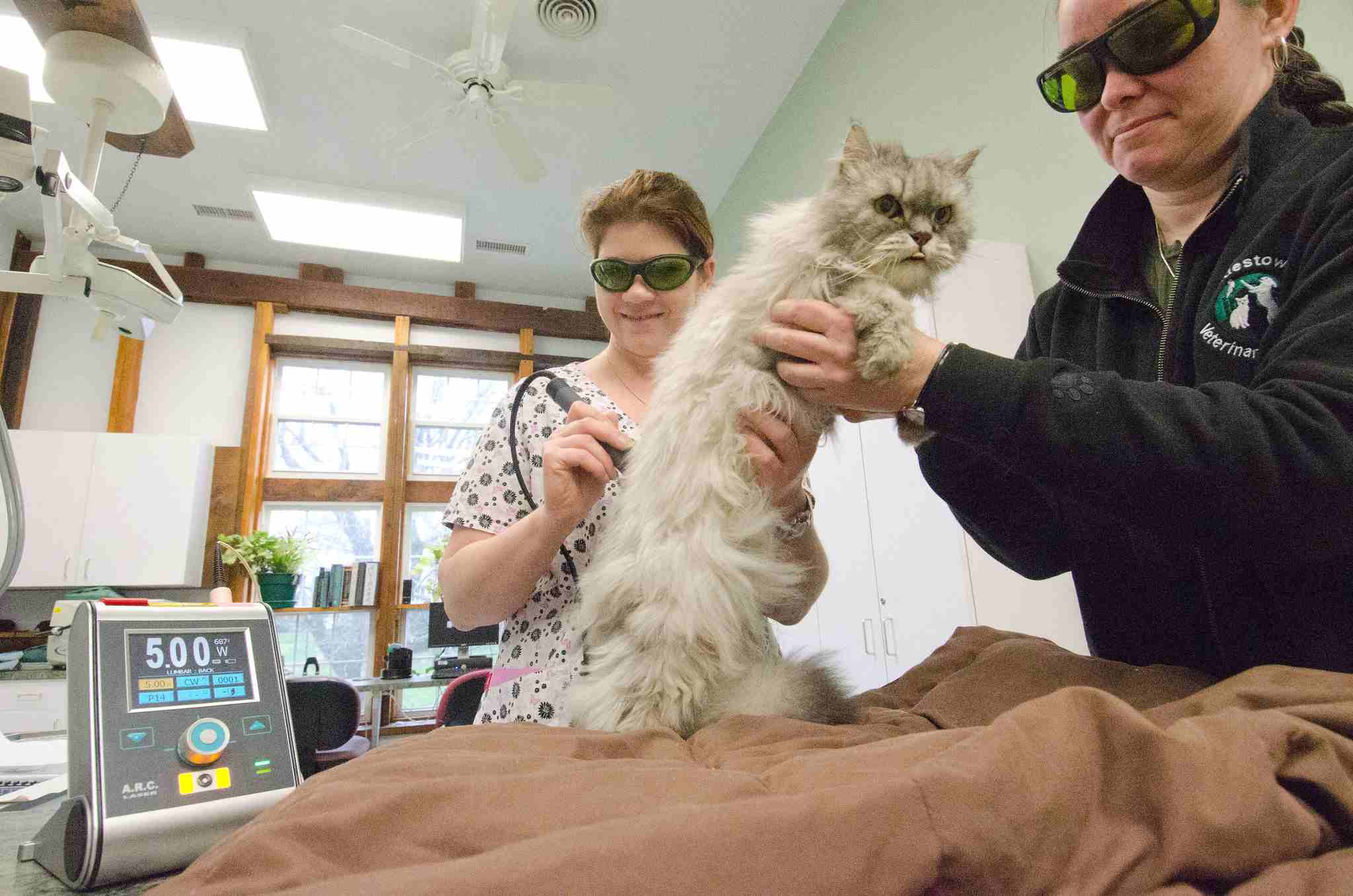
Savannah Cat:
Affectionate but may have an independent streak.
May form strong bonds with their owners.
Maine Coon:
Social and affectionate, often seeking human company.
Known for being gentle and tolerant.
Comparison:
Both breeds can form strong bonds with their human companions, but Maine Coons are often recognized for their gentle nature.
Ecological Implications:
Behavior toward humans can influence their roles as pets and potential impacts on local ecosystems.
22. Danger Posed to Humans:
Savannah Cat:
Generally not considered dangerous to humans.
Can exhibit playful behavior but may unintentionally scratch or bite during play.
Maine Coon:
Not considered dangerous to humans.
Known for their gentle nature and tolerance.
Comparison:
Both breeds are not typically considered dangerous, with any potential harm being more incidental during play.
Ecological Implications:
The perceived danger to humans is minimal for both breeds, influencing their suitability as domestic pets.
23. Associated Precautions:
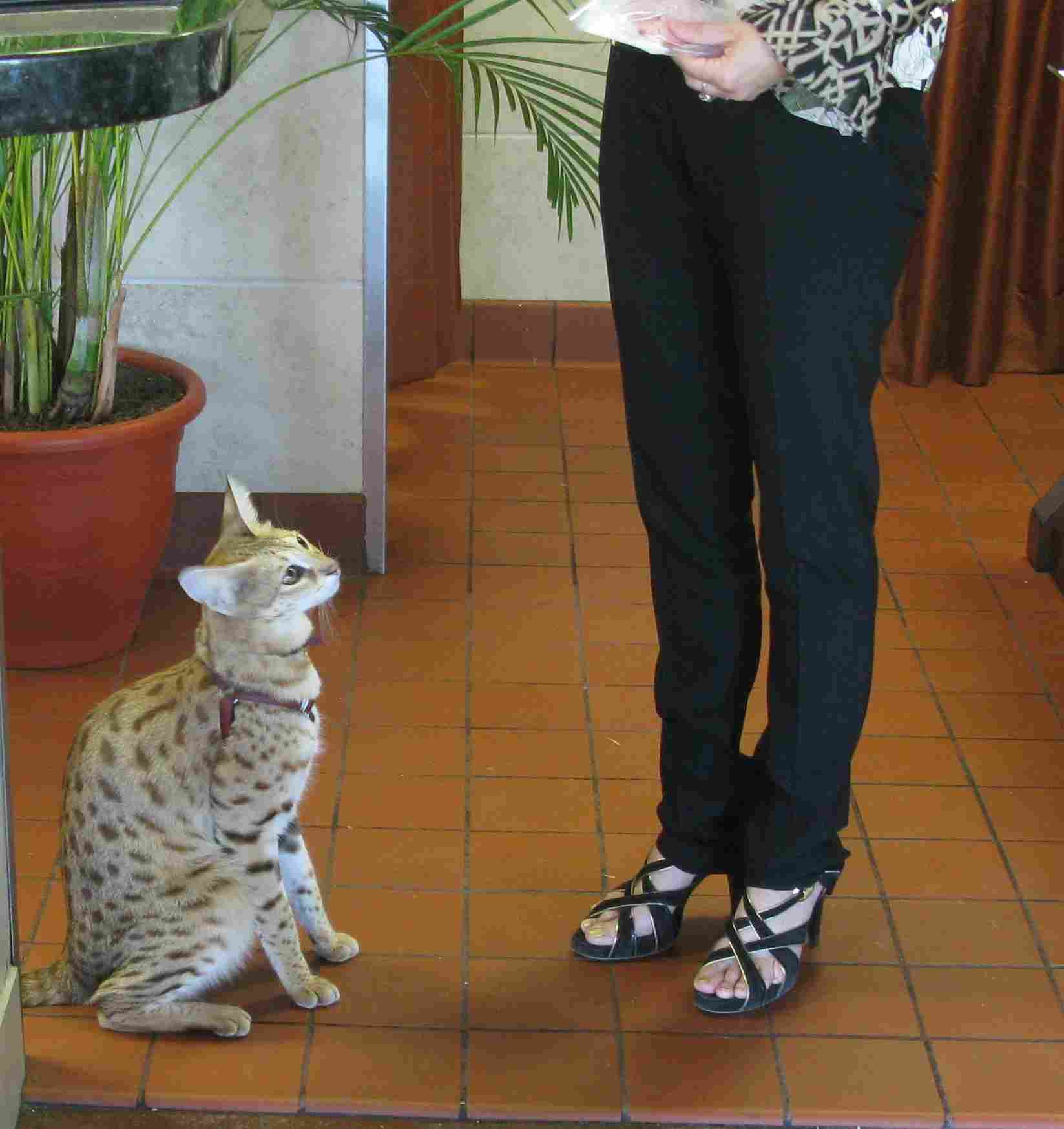
Savannah Cat:
May require early socialization to ensure appropriate behavior.
Regular veterinary care and proper training are recommended.
Maine Coon:
Standard precautions for any domestic cat apply, including regular veterinary care and proper nutrition.
Socialization from a young age is beneficial.
Comparison:
Both breeds benefit from socialization and standard precautions to ensure harmonious coexistence with humans.
Ecological Implications:
Responsible ownership practices are crucial to mitigate potential negative impacts on the environment.
24. Conservation Status:
Savannah Cat:
Not recognized as a distinct species by conservation organizations.
Conservation status not applicable.
Maine Coon:
Not a species of conservation concern.
Recognized as a domestic cat breed.
Comparison:
Neither breed holds conservation status, as they are domesticated cats without wild populations at risk.
Ecological Implications:
Conservation concerns primarily focus on wild cat species rather than domestic breeds.
Summary of Comparison
Appearance:
Savannah Cat: Sleek, spotted coat, and distinct “hooded” ears.
Maine Coon: Large, muscular build, long shaggy fur, and tufted ears.
Size:
Savannah Cat: Medium to large, males larger than females.
Maine Coon: One of the largest domestic breeds, males considerably larger.
Weight:
Savannah Cat: Males 12-25 pounds, females 8-16 pounds.
Maine Coon: Males 13-18 pounds or more, females 8-12 pounds or more.
Bite Force (PSI):
Comparable, around 50-60 PSI for both breeds.
Physical Offensive Advantages:
Savannah Cat: Agile, sharp claws, predatory instincts.
Maine Coon: Excellent hunters, strong hind legs, sharp claws.
Physical Defensive Advantages:
Savannah Cat: Quick reflexes, camouflage-like coat.
Maine Coon: Thick fur, sharp claws, agility.
Speed:
Savannah Cat: Up to 30 mph.
Maine Coon: Up to 25 mph.
Agility:
Savannah Cat: Extremely agile, great jumper.
Maine Coon: Agile, well-coordinated movements.
Senses:
Comparable, keen sight, and hearing, excellent night vision for both.
Overall Physical Capacity:
Savannah Cat: High fitness, well-suited for an active lifestyle.
Maine Coon: Robust and muscular, adaptable.
Habitat Preference(s):
Savannah Cat: Open spaces, warmer climates.
Maine Coon: Adaptable, associated with colder regions.
Tracks:
Savannah Cat: Elongated, slender toe prints, visible claw marks.
Maine Coon: Larger prints, retractable claws.
Lifespan:
Comparable, 12-20 years for Savannah cats, 12-15 years for Maine Coons.
Mode of Feeding:
Both are carnivorous, requiring high-quality cat food.
Intelligence:
Both breeds considered intelligent, displaying problem-solving abilities.
Social Behavior:
Savannah Cat: Affectionate, somewhat independent.
Maine Coon: Social, affectionate, gentle nature.
Mode of Reproduction:
Both reproduce through sexual reproduction.
Parental Behavior:
Both exhibit maternal care, grooming, and protection.
Proximity to Human-Inhabited Areas:
Savannah Cat: May need socialization, retains some wild instincts.
Maine Coon: Generally well-adapted, social, and enjoys human company.
Behavior Toward Humans:
Both can form strong bonds with owners, but Maine Coons are often gentler.
Danger Posed to Humans:
Neither breed is typically considered dangerous.
Associated Precautions:
Both require socialization and standard precautions for responsible ownership.
Conservation Status:
Neither has conservation status, being domesticated breeds.
Conclusion
I. Similarities:
Both Savannah cats and Maine Coons are domestic cat breeds.
Share common features such as carnivorous diet, modes of reproduction, and general domestication.
II. Differences:
Diverge in appearance, with Savannah cats displaying a more exotic, wild look.
Vary in size, with Maine Coons generally larger.
Exhibit differences in behavior, with Savannah cats potentially retaining more wild instincts.
Vary in adaptability to human-inhabited areas, with Maine Coons being more domesticated.
